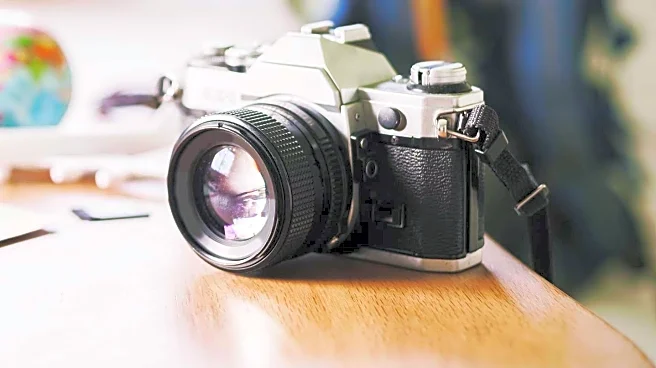What's Happening?
Rachel Martin, a 33-year-old, realized she was spending excessive time on screens, leading her to seek analog hobbies. She discovered journaling with fountain pens, which helped her reduce screen time and manage her chronic migraines. Experts suggest adopting new hobbies can improve mental and physical health by providing stress relief and social connections. Finding a hobby that sticks involves trying various activities, considering personal interests, and being intentional with time use. Recommendations include starting small, exploring childhood interests, and seeking advice from friends.
Why It's Important?
Reducing screen time is crucial for mental and physical well-being, especially in a digital age where screens dominate daily life. Engaging in hobbies can offer a break from digital overload, fostering creativity, social interaction, and physical activity. This shift can lead to improved mood, reduced stress, and enhanced overall health. As people increasingly seek balance between digital and analog activities, understanding how to effectively integrate hobbies into daily routines becomes essential for maintaining a healthy lifestyle.
Beyond the Headlines
The movement towards screen-free hobbies reflects broader societal trends emphasizing mindfulness and intentional living. As individuals seek to disconnect from digital distractions, they may experience deeper connections with themselves and others. This shift could influence cultural norms around leisure and productivity, encouraging more people to prioritize personal fulfillment over digital engagement. Additionally, the rise of hobby communities may foster new social networks, enhancing community ties and collective well-being.








